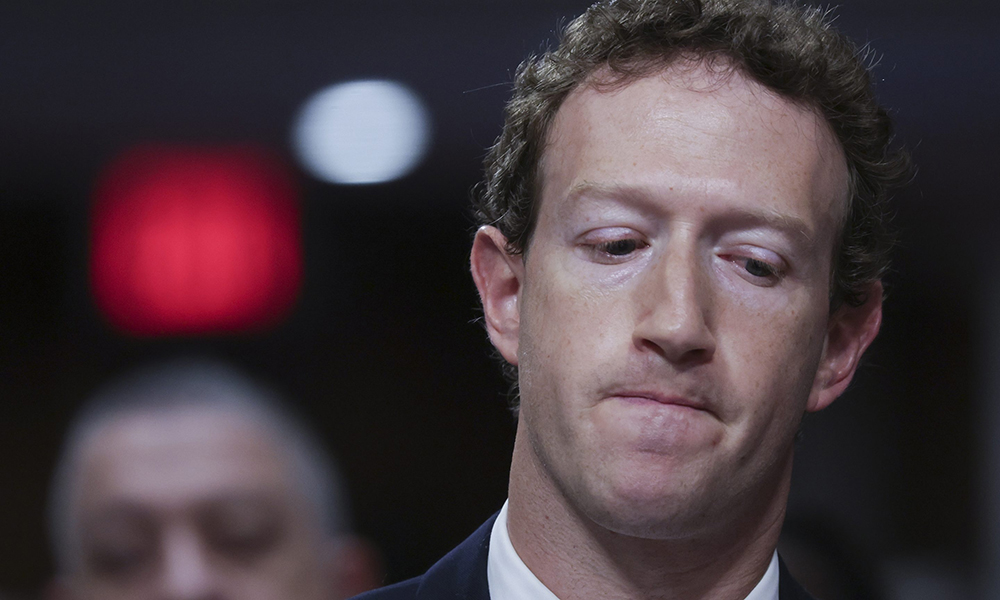人工智能如同减肥神药,有些公司用了却不说

许多大型科技公司都在裁员“瘦身”。在过去的几年里,这种企业裁员现象在科技行业已经屡见不鲜。
对于裁员背后的原因,知名营销学教授和媒体经理斯科特·加洛韦有一套自己的理论,即人工智能。问题在于,许多高管不愿意承认他们裁员的目的是用人工智能取代人类。
加洛韦将此举比作许多人通过服用减肥药来减肥的公开秘密,并称人工智能是“企业版司美格鲁肽注射液”。
加洛韦在他的博客中毫不留情/毫无恶意(No Mercy/No Malice)地写道:“我的论点是,公司(尤其是科技公司)也发现了一种减肥药,但却对此讳莫如深。最近的财经新闻有两大特点:裁员和创纪录的利润。这两者之间存在关联。”
近几个月来,大量科技公司进行了裁员。自2022年11月以来,硅谷的中坚力量Meta已经裁掉了大约2万名员工。在取消自动驾驶汽车项目后,苹果(Apple)可能会从其自动驾驶汽车部门裁减数百名员工。赛富时(Salesforce)在2023年裁员7,000多人后,今年年初又裁员约700人。今年1月,Alphabet的广告销售和硬件团队进行了两轮裁员,在2022年解雇了1.2万名员工之后,又裁减了1,000多名员工。
加洛韦指出,所有这一切都发生在科技行业取得辉煌业绩的时候。其中一些公司甚至公布了历史性的数据:Meta宣布,2023年第四季度的营收达到创纪录的401亿美元,净利润则是上年同期的三倍。加洛韦表示,这种差异表明,这是一种战略转变,而不是源于对一家濒临倒闭的公司的调整需求。
加洛韦在帖子中写道:“我相信人工智能在裁员中扮演的角色比首席执行官们愿意承认的要大得多。首席执行官们对此讳莫如深,至少在公开场合是这样,原因是人们对人工智能这个美丽新世界感到恐惧。”
加洛韦拒绝置评。
到目前为止,科技公司还未曾表示裁员是向人工智能转型的结果。事实上,IBM的首席执行官阿尔温德·克里希纳等人曾经指出,该公司在人工智能方面的投资意味着员工人数将会增加。其他公司,例如Alphabet,则明确表示,人工智能和裁员没有关联。Alphabet在2014年收购了开创性的初创公司DeepMind,并发布了聊天机器人Bard(现名为Gemini),成为人工智能领域的巨头。
Alphabet的首席商务官菲利普·辛德勒在本月的财报电话会议上称:“我们之所以进行重组,并不是因为人工智能夺走了工作岗位。这一点很重要。”
加洛韦说,正是这些否认“首先引起了我的注意”。他将司美格鲁肽注射液的比喻延伸开来,把这些公司的声明比作那些声称自己“戒掉麸质食品”来减肥的人,而不是承认自己已经开始服用减肥药。司美格鲁肽注射液让减肥变得易如反掌,原因是它从根本上消除了饥饿感;在商业领域,人工智能也可以消除此类需求。在加洛韦看来,企业也会乐于消除对人类的需求。
加洛韦写道:“如果消费者愿意每月支付1,000美元来减肥,从而不会产生饥饿感,那么一家公司会支付多少资金来实现以前无法想象的目标:在增加收入的同时降低成本?”
这并不意味着所有的工作岗位都将被淘汰。加洛韦认为,人工智能还将帮助员工增强工作能力,使公司能够以更少的资源完成更多的事情。他写道:“管理者可以制定新计划或探索新领域,而不必为雇佣更多的员工感到头疼。”
人工智能与人类和谐共处的未来工作场所的概念变得司空见惯。目前比较公认的一种观点是,人工智能确实将取代死记硬背的重复性工作。在这种情况下,人工智能即便不是取代整个工作岗位,也很可能取代某些工作职能。但这并不意味着人工智能的影响能够忽略不计: 国际货币基金组织(International Monetary Fund)预测,发达经济体中约有60%的工作岗位将受到人工智能的影响。不过,其中大约一半工作的生产率会提高。高盛集团(Goldman Sachs)的另一项估计显示,三分之二的工作岗位以及多达四分之一的现有工作岗位可能会受到影响。
所有这些对人工智能的新关注,确实意味着在该领域拥有专业知识的少数人将非常抢手。各家公司将争相聘用这些人才,而许多科技公司已经在这样做了,但这一趋势正开始在美国企业界的其他部门蔓延。
加洛韦预测,明年,随着人工智能在工作场所的使用越来越普遍,高管们将公开承认他们正在用人工智能取代人类的事实。当这种情况发生时,“专家们会在很长时间内感到不可置信,直到股价暴涨,然后隐藏在众目睽睽之下的秘密将被公之于众:[人工智能]是企业的司美格鲁肽注射液。这并不关乎戒掉碳水,而是戒掉对碳水的欲望。也就是说,企业将不再需要雇佣人才。”加洛韦写道。(财富中文网)
译者:中慧言-王芳
许多大型科技公司都在裁员“瘦身”。在过去的几年里,这种企业裁员现象在科技行业已经屡见不鲜。
对于裁员背后的原因,知名营销学教授和媒体经理斯科特·加洛韦有一套自己的理论,即人工智能。问题在于,许多高管不愿意承认他们裁员的目的是用人工智能取代人类。
加洛韦将此举比作许多人通过服用减肥药来减肥的公开秘密,并称人工智能是“企业版司美格鲁肽注射液”。
加洛韦在他的博客中毫不留情/毫无恶意(No Mercy/No Malice)地写道:“我的论点是,公司(尤其是科技公司)也发现了一种减肥药,但却对此讳莫如深。最近的财经新闻有两大特点:裁员和创纪录的利润。这两者之间存在关联。”
近几个月来,大量科技公司进行了裁员。自2022年11月以来,硅谷的中坚力量Meta已经裁掉了大约2万名员工。在取消自动驾驶汽车项目后,苹果(Apple)可能会从其自动驾驶汽车部门裁减数百名员工。赛富时(Salesforce)在2023年裁员7,000多人后,今年年初又裁员约700人。今年1月,Alphabet的广告销售和硬件团队进行了两轮裁员,在2022年解雇了1.2万名员工之后,又裁减了1,000多名员工。
加洛韦指出,所有这一切都发生在科技行业取得辉煌业绩的时候。其中一些公司甚至公布了历史性的数据:Meta宣布,2023年第四季度的营收达到创纪录的401亿美元,净利润则是上年同期的三倍。加洛韦表示,这种差异表明,这是一种战略转变,而不是源于对一家濒临倒闭的公司的调整需求。
加洛韦在帖子中写道:“我相信人工智能在裁员中扮演的角色比首席执行官们愿意承认的要大得多。首席执行官们对此讳莫如深,至少在公开场合是这样,原因是人们对人工智能这个美丽新世界感到恐惧。”
加洛韦拒绝置评。
到目前为止,科技公司还未曾表示裁员是向人工智能转型的结果。事实上,IBM的首席执行官阿尔温德·克里希纳等人曾经指出,该公司在人工智能方面的投资意味着员工人数将会增加。其他公司,例如Alphabet,则明确表示,人工智能和裁员没有关联。Alphabet在2014年收购了开创性的初创公司DeepMind,并发布了聊天机器人Bard(现名为Gemini),成为人工智能领域的巨头。
Alphabet的首席商务官菲利普·辛德勒在本月的财报电话会议上称:“我们之所以进行重组,并不是因为人工智能夺走了工作岗位。这一点很重要。”
加洛韦说,正是这些否认“首先引起了我的注意”。他将司美格鲁肽注射液的比喻延伸开来,把这些公司的声明比作那些声称自己“戒掉麸质食品”来减肥的人,而不是承认自己已经开始服用减肥药。司美格鲁肽注射液让减肥变得易如反掌,原因是它从根本上消除了饥饿感;在商业领域,人工智能也可以消除此类需求。在加洛韦看来,企业也会乐于消除对人类的需求。
加洛韦写道:“如果消费者愿意每月支付1,000美元来减肥,从而不会产生饥饿感,那么一家公司会支付多少资金来实现以前无法想象的目标:在增加收入的同时降低成本?”
这并不意味着所有的工作岗位都将被淘汰。加洛韦认为,人工智能还将帮助员工增强工作能力,使公司能够以更少的资源完成更多的事情。他写道:“管理者可以制定新计划或探索新领域,而不必为雇佣更多的员工感到头疼。”
人工智能与人类和谐共处的未来工作场所的概念变得司空见惯。目前比较公认的一种观点是,人工智能确实将取代死记硬背的重复性工作。在这种情况下,人工智能即便不是取代整个工作岗位,也很可能取代某些工作职能。但这并不意味着人工智能的影响能够忽略不计: 国际货币基金组织(International Monetary Fund)预测,发达经济体中约有60%的工作岗位将受到人工智能的影响。不过,其中大约一半工作的生产率会提高。高盛集团(Goldman Sachs)的另一项估计显示,三分之二的工作岗位以及多达四分之一的现有工作岗位可能会受到影响。
所有这些对人工智能的新关注,确实意味着在该领域拥有专业知识的少数人将非常抢手。各家公司将争相聘用这些人才,而许多科技公司已经在这样做了,但这一趋势正开始在美国企业界的其他部门蔓延。
加洛韦预测,明年,随着人工智能在工作场所的使用越来越普遍,高管们将公开承认他们正在用人工智能取代人类的事实。当这种情况发生时,“专家们会在很长时间内感到不可置信,直到股价暴涨,然后隐藏在众目睽睽之下的秘密将被公之于众:[人工智能]是企业的司美格鲁肽注射液。这并不关乎戒掉碳水,而是戒掉对碳水的欲望。也就是说,企业将不再需要雇佣人才。”加洛韦写道。(财富中文网)
译者:中慧言-王芳
Lots of big tech companies are slimming down and cutting their workforces. This corporate trimming of the fat has become common in the tech sector over the past couple of years.
Well-known marketing professor and media impresario Scott Galloway has a theory as to what’s behind the layoffs: AI. The catch is many executives are hesitant to admit they’re laying off employees with the intent of replacing their jobs with artificial intelligence.
Galloway likens the move to the open secret many people use to lose weight themselves, calling AI “corporate Ozempic.”
“My thesis is that firms (notably tech companies) have also discovered a weight loss drug and are also being coy about it,” Galloway writes on his blog, No Mercy/No Malice. “Recent financial news features two stories: layoffs and record profits. These are related.”
A spate of tech companies have conducted layoffs in recent months. Meta, a Silicon Valley stalwart, has laid off around 20,000 employees since November 2022. Apple might be cutting hundreds of employees from its self-driving car unit after killing the project. Salesforce laid off about 700 employees at the beginning of the year after cutting more than 7,000 people in 2023. In January, across two rounds of layoffs that hit its ad sales and hardware teams, Alphabet laid off over 1,000 employees after handing out 12,000 pink slips in 2022.
All this comes, Galloway notes, as the tech industry has seen stellar business results. Some of them even delivered historic numbers: Meta announced a record $40.1 billion in revenue in the fourth quarter of 2023, while tripling net income compared with the same period the year before. The discrepancy points to a strategic shift rather than a need to rightsize an ailing company, according to Galloway.
“I believe AI is playing a larger role in layoffs than CEOs are willing to admit,” Galloway writes in the post. “CEOs are being coy about this, at least in public, because there’s a sense of fear surrounding the brave new world of AI.”
Galloway declined to comment.
So far, tech companies have not said their layoffs were the result of a transition to AI. In fact, some like IBM CEO Arvind Krishna have said the company’s investments in AI mean headcount will increase. Others, like Alphabet, which has been a juggernaut in AI with the acquisition of pioneering startup DeepMind in 2014 and the release of tools like its Bard chatbot (now called Gemini), were clear in saying AI and layoffs weren’t related.
“We’re not restructuring because AI is taking away roles—that’s important here,” Alphabet chief business officer Philipp Schindler said on an earnings call this month.
It was those denials that “first raised my antennae,” Galloway says. Extending his Ozempic analogy, he likens these corporate statements to people who say they “cut out gluten” to lose weight, instead of admitting that they’ve started taking the weight-loss drug. Ozempic makes it easier to lose weight because it essentially eliminates cravings; in business, AI can eliminate a craving Galloway believes companies would be happy to do away with.
“If consumers are willing to pay $1,000 a month to lose weight without cravings, what would a corporation pay to achieve the previously unthinkable: reducing costs while growing revenue?” Galloway writes.
That doesn’t mean all jobs will be eliminated. Galloway believes AI will also help employees augment their work, allowing for companies to do more with less. “Managers can take on new initiatives and domains without the headache of hiring more humans,” he writes.
The concept of a future workplace where AI and humans work in harmony is becoming increasingly common. One of the more accepted views now is that AI will simply replace rote, repetitive work. In that scenario, AI is likely to replace certain job functions if not entire roles. That doesn’t mean AI’s effects will be negligible: The International Monetary Fund predicts some 60% of jobs in advanced economies will be impacted by AI. Roughly half of them, though, could see productivity go up. Another estimate from Goldman Sachs says two-thirds of jobs, and up to one-fourth of current work, could be affected.
All that new focus on AI does mean the few people with expertise in the field will be in high demand. Companies will be eager to hire these people, and many of the tech companies already have, but the trend is starting to proliferate in other sectors across corporate America.
Galloway predicts over the next year, executives will be open about the fact they’re replacing people with AI as its usage in the workplace becomes more common. When that does happen, “pundits will clutch their pearls for a hot minute until the stock explodes, and the secret hiding in plain sight will be visible to everyone: [AI is] corporate Ozempic. It’s not about less bread, but less craving for bread. Read: hiring people,” Galloway writes.













